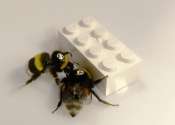Coordinated Punishment Leads to Increased Cooperation in Large Groups
(PhysOrg.com) -- Humans are incredibly cooperative, but why do people cooperate and how is cooperation maintained? A new research study by UCLA anthropology professor Robert Boyd and his colleagues from the Santa Fe Institute ...







